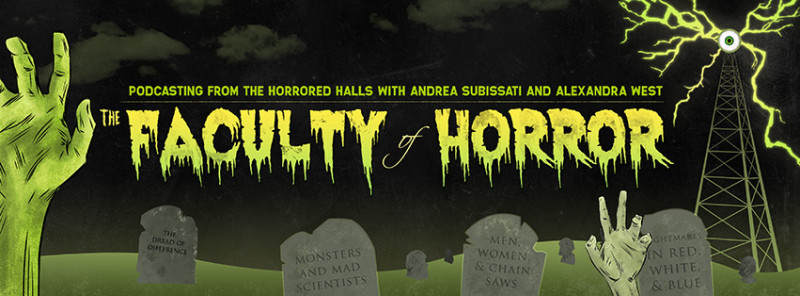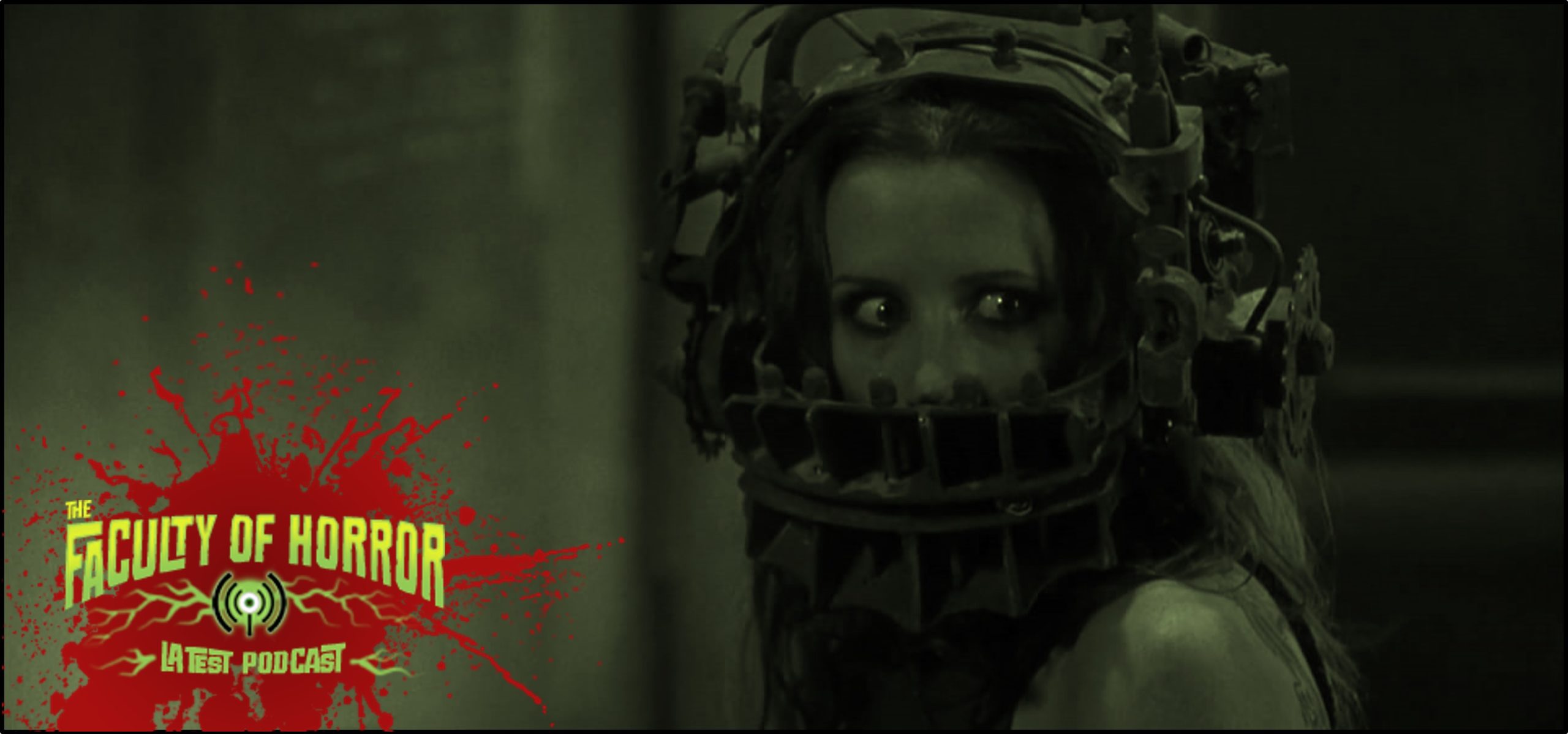Do you want listen to an episode about Torture Porn? Well, you’re in luck! Andrea and Alex dive into the 2000s to look at the phenomenon of Torture Porn; what preceded it, what it meant, and where we can potentially place it in our collective imagination.
Class of 2021 Merch is here! Original art by Slutfocate
REQUIRED READING
Saw. Dir. James Wan, 2004.
Hostel. Dir. Eli Roth, 2005.
EXTRA CREDIT
Saw 0.5. James Wan and Leigh Whannell’s short film made as a proof of concept for what would eventually become Saw.
Sympathy for the Sequel, Saw: The Final Chapter. Alex’s series on Rue Morgue TV.
HBO’s Succession podcast. S3E2 episode where host Kara Swisher talks to organizational psychologist Adam Grant.
Smash hit horror Hostel causes a stir among citizens of sleepy Slovakia. Roth’s interview with European press about his take on Europe and why he made Hostel.
Ghost Faces: Hollywood and Post-Millennial Masculinity. David Greven’s book which features the chapter “Torture/Porn: Hostel, Homophobia and Gay Male Internet Porn.”
Gaylords of Darkness Episode 124: Lady Police Academy. Stacie and Anthony’s fantastic episode on Roth’s Knock Knock.
Capone and Eli Roth discuss horror movies, gore, Stephen King, the phrase “Torture Porn” and much more! An interview on Hostel 2 wherein Roth reveals his insights on feminism among other things…
Torture: A Sociology of Violence and Human Rights by Lisa Hajjar. How the morality of torture has shifted since 9/11 and the war on terror.
Are horror films immoral? No, they aren’t.
LISTEN
Right click or option-click here and choose “Save Target As”
Podcast: Play in new window | Download


In the discussion about “Hostel,” Alex made reference to “U.S. Foreign policy toward eastern Europe during the Cold War,” as if the U.S. was somehow responsible for the condition of Eastern Europe between 1945 and 1990.
I’m confused about what Alex might have meant. After all, Slovakia was behind the “Iron Curtain” during the Cold War, and was under the influence/control of the Soviet Union. The only U.S. policy toward the Soviet Bloc in the Cold War was keeping the Red Army from crashing across West Germany.
I suppose you could argue that policy was misguided. I’d say the people of the former West Germany, Belgium, The Netherlands and France would disagree.
Perhaps I failed to understand how U.S. foreign policy during that period somehow damaged Slovakia. If that idea had been explained, I might have followed it better. As it is, the comment struck me as lazy anti-Americanism divorced from the actual history of the period.
There are plenty of things to criticize “Hostel” about: It’s misogynist, the main characters are thoroughly terrible, it’s leering love of T&A is uncomfortable (although I guess you could argue the Josh and Paxton, the oglers, become the ogled, which is an interesting turnaround), and it’s almost Trumpian in its “Make America Isolationist Again” fear of foreigners, and its creator got to his “auteur” status by riding the coattails of others while not understanding the 1970s movies he wants to ape. But the “U.S. Policy toward Eastern Europe” stuff is an extreme reach that seems like it’s coming from someone looking for yet another reason to bash the U.S.
I didn’t experience any comments as “Ameri-bashing.” There has been criticism of the U.S. role in Eastern Europe since the Yalta Conference (my grandfather never forgave Roosevelt). The U.S. was intent on imposing its definition of international order after WWII. Revisionist historians suggest that the increase of Soviet resolve was in response to U.S. aspirations for the world. So, there is a bit of a “chicken/egg” issue here. For interested readers/listeners, there is a nice summary paper at https://www.jstor.org/stable/1889975.
Just blaming Yalta ignores the military realities of Europe when the conference took place in February, 1945. By that point, the Red Army had crossed Poland and were across the border into Germany. The Balkans and Czechoslovakia were out of U.S./British military reach. The reality is the western Allies were not going to move the Soviets out of those countries without a fight — which would have had to be done at a considerable disadvantage (supplies would have to be shipped across the Atlantic, after all), and while still fighting Japan in the Pacific.
Perhaps the revisionist historians you mention should read more history about Stalin. Given all of Stalin’s crimes against places like the Ukraine before the war, it’s hard to imagine a Stalin that ever would have given up the eastern European countries under his control.
But we’re sidestepping the problem with the podcast. I don’t think the podcaster should just throw out blanket statements about “U.S. foreign policy toward easter Europe during the Cold War” without backing the statement up with some evidence. Because, from what you might consider my revisionist history, U.S. policy was to keep the USSR from gobbling up the rest of Europe. It’s not as if they didn’t try — Berlin blockage anyone?
Hi Fac! Another great episode! First off, thank you for clarifying a mystery for me. A while back, I tuned into a show presumptuously titled, “History of Horror.” I spent about 20 minutes trying to figure out who this kind of jerky guy (E. Roth) was. Then I spent another 20 minutes wondering, “Why aren’t Andrea and Alex hosting this?” Then I quit the show and re-listened to your third “WITCH” episode (a gem). Now, after listening to this “SAW/HOSTEL” episode, I have a more well-rounded dislike for E. Roth 🙂
As someone put off by the phrase “torture porn,” I appreciate your dissection and dismissal of the phrase. I did re-watch the first SAW and found much to appreciate! As always, thank you for your work and incisive dialogue.